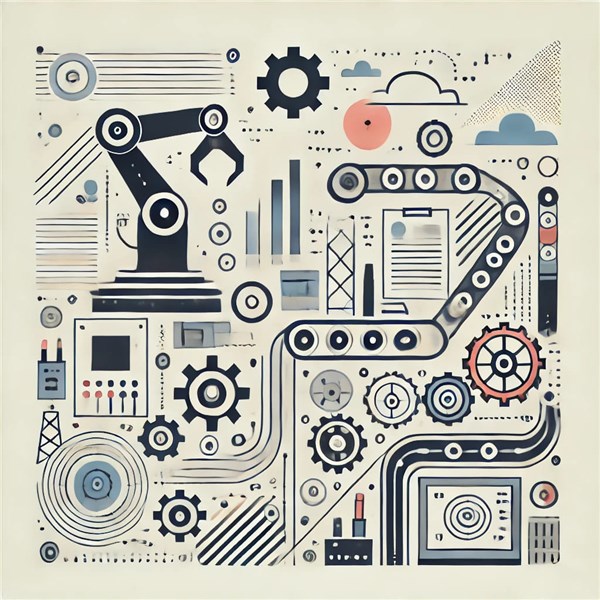Unable to find what you're searching for?
We're here to help you find it
In the age of Industry 4.0, where smart factories, robotic systems, and real-time data are transforming how products are made, industrial automation is no longer optional — it’s the future. Industries are shifting from manual operations to highly automated environments to boost efficiency, reduce downtime, and optimize production costs.
As a result, the demand for trained professionals in industrial automation has skyrocketed. Whether you're a fresh engineering graduate, a working technician, or someone switching careers, an industrial automation training program equips you with the skills needed to design, control, and troubleshoot automated systems.
But what exactly do you learn in such a course?
In this blog, we’ll walk you through the top 10 essential concepts covered in a typical industrial automation training program — and why each is critical to becoming a successful automation engineer.
At the heart of industrial automation lies the PLC — a ruggedized computer used to control machinery.
In your training, you’ll learn:
Popular PLC brands like Siemens, Allen-Bradley (Rockwell), Mitsubishi, and Schneider Electric are commonly used in training labs. You'll get hands-on experience programming real industrial-grade controllers.
👉 Why it matters: PLCs are the brain of most automated systems in manufacturing, power plants, water treatment, and more.
A SCADA system allows operators to monitor and control industrial processes remotely through software interfaces.
You’ll learn how to:
Popular SCADA software includes Wonderware, WinCC, InduSoft, and Ignition.
👉 Why it matters: SCADA gives plant operators a centralized interface to supervise complex systems, improving safety and efficiency.
The HMI is the graphical user interface that lets humans interact with machines. Training will teach you to:
👉 Why it matters: A well-designed HMI boosts productivity and reduces operator errors.
Automation relies on accurate sensing and precise control. You’ll learn about:
👉 Why it matters: Sensors provide the real-world data needed for automated decision-making, while actuators execute the commands.
Modern automation systems involve multiple devices working together — and they need to communicate reliably.
In training, you'll explore protocols such as:
You’ll also learn network basics like IP addressing, Ethernet switching, and troubleshooting communication errors.
👉 Why it matters: Without proper communication, automation systems can become isolated, slow, or fail altogether.
Beyond hardware, automation is also about logic and control theory. You'll learn to:
👉 Why it matters: Sound control logic ensures systems perform accurately, safely, and efficiently.
Even the most advanced automation systems require proper electrical infrastructure.
Your training will cover:
👉 Why it matters: Correct wiring is crucial to prevent malfunctions, hazards, and downtime.
Many training programs now include an introduction to industrial robots and servo/motion control systems.
You’ll learn about:
👉 Why it matters: Robotics is an integral part of modern manufacturing automation, especially in automotive, packaging, and electronics industries.
With the rise of Industry 4.0, you'll also explore how cloud connectivity, edge computing, and data analytics are transforming industrial automation.
Topics often include:
👉 Why it matters: The future of automation lies in connected, data-driven decision-making across factories.
Finally, training programs typically include practical projects and troubleshooting exercises, such as:
👉 Why it matters: Real-world, hands-on experience is what turns theory into job-ready skills.
✅ Final Thoughts
Industrial automation is one of the most exciting and rapidly growing fields in engineering and technology. Enrolling in a structured training program gives you a head start by equipping you with practical, in-demand skills — from PLC programming to smart factory integration.
Whether you’re aiming to enter the field, switch careers, or upskill for Industry 4.0, mastering these top 10 concepts through automation training will open doors to high-paying roles and innovative projects across multiple industries.
By mastering these concepts, you can become a sought-after professional in the field of Industrial Automation. Koenig Solutions, a leading IT training company, offers comprehensive Industrial Automation Training courses that cover these concepts in-depth, providing you with the skills and knowledge you need to excel in this field.

Aarav Goel has top education industry knowledge with 4 years of experience. Being a passionate blogger also does blogging on the technology niche.










